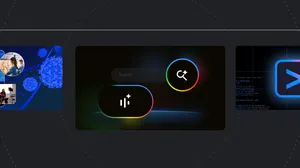Driving change with Rolling Study Halls

Editor’s note: We’re sharing the stories of bus drivers from Talladega County, Alabama who participate in Rolling Study Halls. This program powers their buses—along with others across the U.S.—with Wi-Fi, devices and onboard educators to help thousands of students reclaim 1.5 million learning hours. As part of our Grow with Google initiative to help provide more Americans with access to the tools and skills they need, we expanded the program across the country in 2018. In the past academic year, participating school districts across the U.S. have seen improvements in student grades, confidence and homework completion. Dr. Suzanne Lacey, Superintendent from Talladega County, is sharing more about the impact this program is having in her community and beyond.
Talladega County is home to more than 7,000 students across 17 schools. The majority of our students spend a sizable part of their day on a bus getting to and from school. In our rural county, many students also face limited access to the internet—and it’s not just an economic issue. In a lot of places where our students live, there simply isn’t access available. For these reasons, Google’s Rolling Study Halls has become an important part of our educational program since we became a participating district last April. Through a creative use of commute time, we’re now able to open doors for these students to opportunities they might not have had otherwise. Our bus drivers aren’t just driving students to school, they’re also helping to drive change that goes beyond their daily routines.
Maximizing opportunities for learning
Kim Gaither, who drives a Rolling Study Halls bus for Munford Elementary and High School, has said the program dramatically improves her long bus route, which is now quieter due to better student behavior. While Kim’s focusing on the road, the kids get to focus on getting more out of their time on the bus. By extending the time available for learning day, everyone benefits. Principal Michelle Head says Stemley Road Elementary teachers have seen student confidence grow, which she and her teachers attribute to Rolling Study Halls.
Creating time to connect
Rolling Study Halls also fosters relationships between the onboard educator and their students. Drew Middle School teacher and onboard educator, Stuart Bently, recently shared with me the story of a former 7th grade student who struggled in class and rarely completed her work. On the bus, Stuart can give this student extra attention and have conversations about not just her assignments, but also about what’s going on in her life. He’s proud that this student is now completing assignments, participating in class and couldn’t wait to show him her last report card.
Onboard educator and 2nd grade teacher Jessica Moses provides targeted warm-up activities for students on her bus each morning to get students into the right frame of mind before getting to school. These activities are a rare opportunity to have a positive impact on students' learning attitudes before they even walk through their classroom door, setting the tone for their day.
Driving change
Our entire community—parents, teachers and bus drivers—are all eager to see how this program will continue to positively impact our students. And we’re inspired to know that what’s working here is also working in other Rolling Study Halls school districts. In Tennessee, the Clarksville-Montgomery County School District has seen improvements in their students’ GPAs at both the middle and high school levels. Teachers have said students are now more comfortable in asking for help with assignments or standards they don’t understand. The same goes for Lexington County School District One in South Carolina, where 57 percent of participating students say that the Wi-Fi connection on the bus is better than at home and 83 percent say the time on the bus is critical to helping them finish their homework.
Back home, as we continue to measure success, we’ll also investigate methods for expansion. Talladega County Schools always looks for opportunities to maximize learning for our students. Together with Google, we’re making a difference for them, and we’re especially thankful for our bus drivers who are behind the wheel, making this whole thing run.






